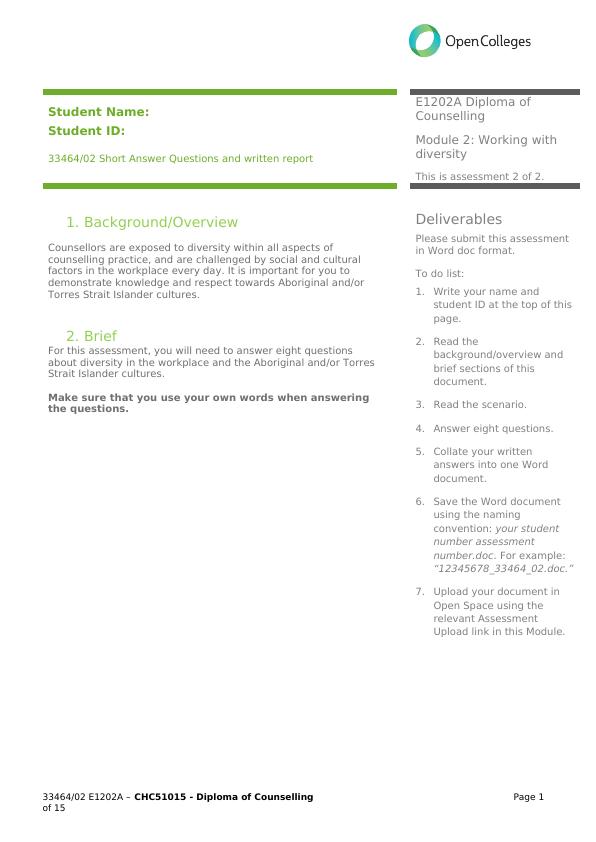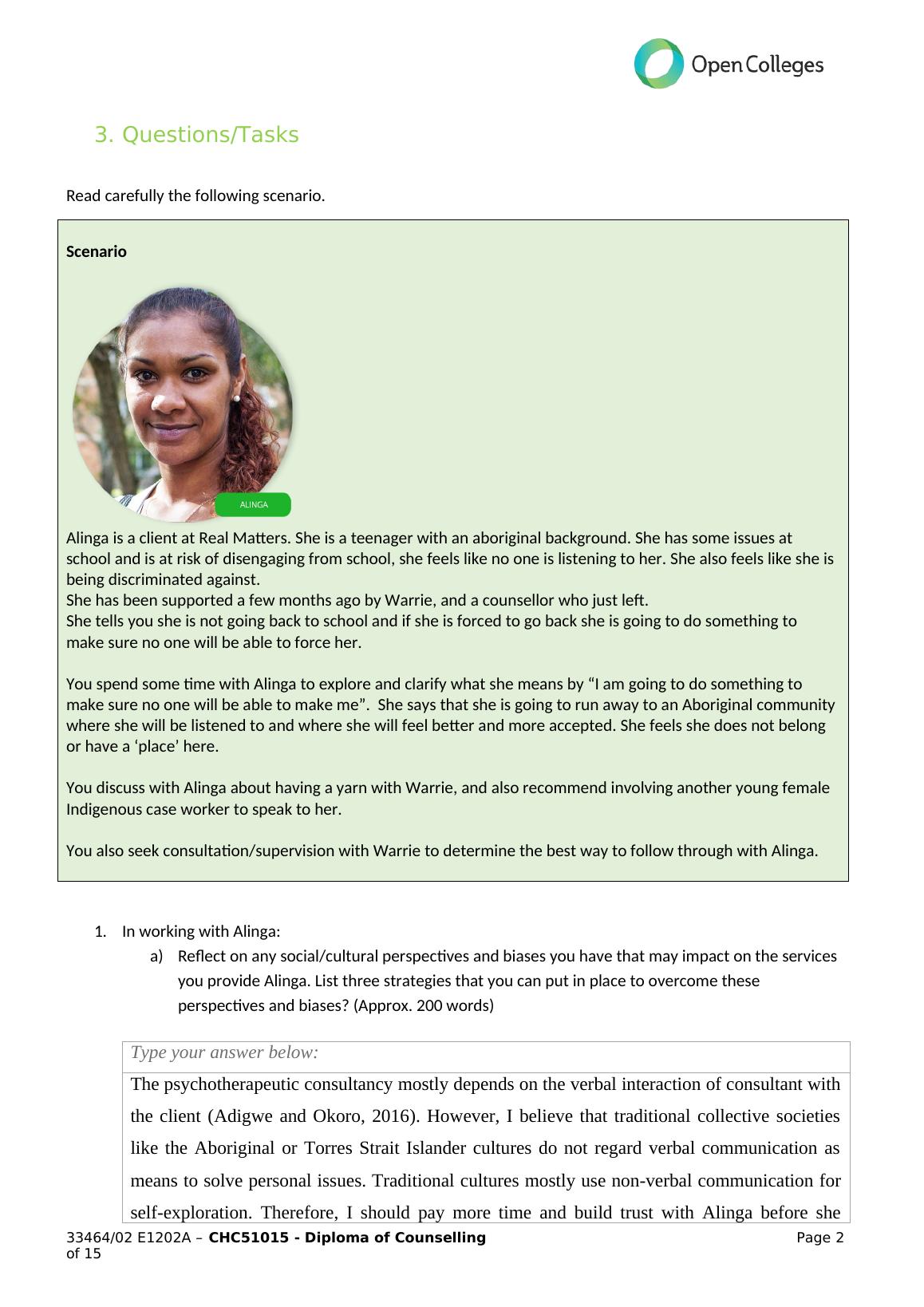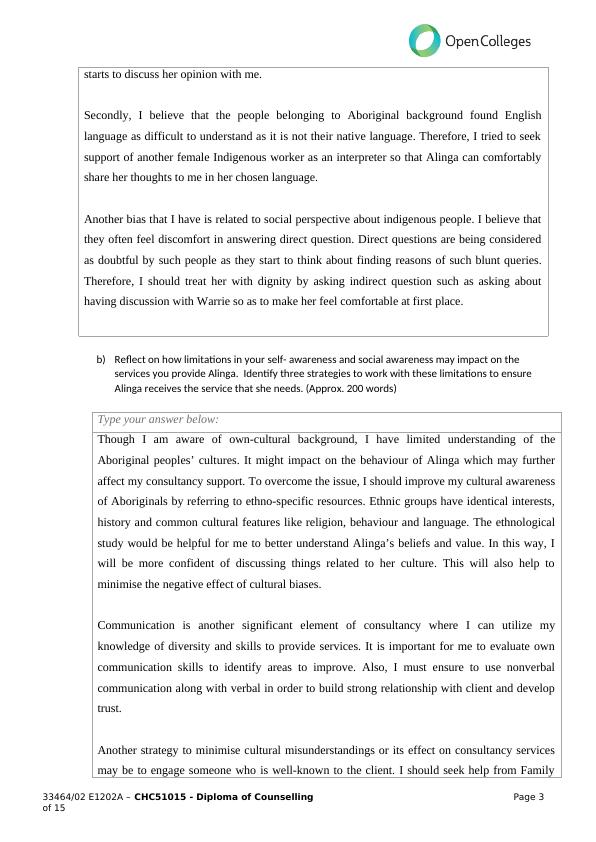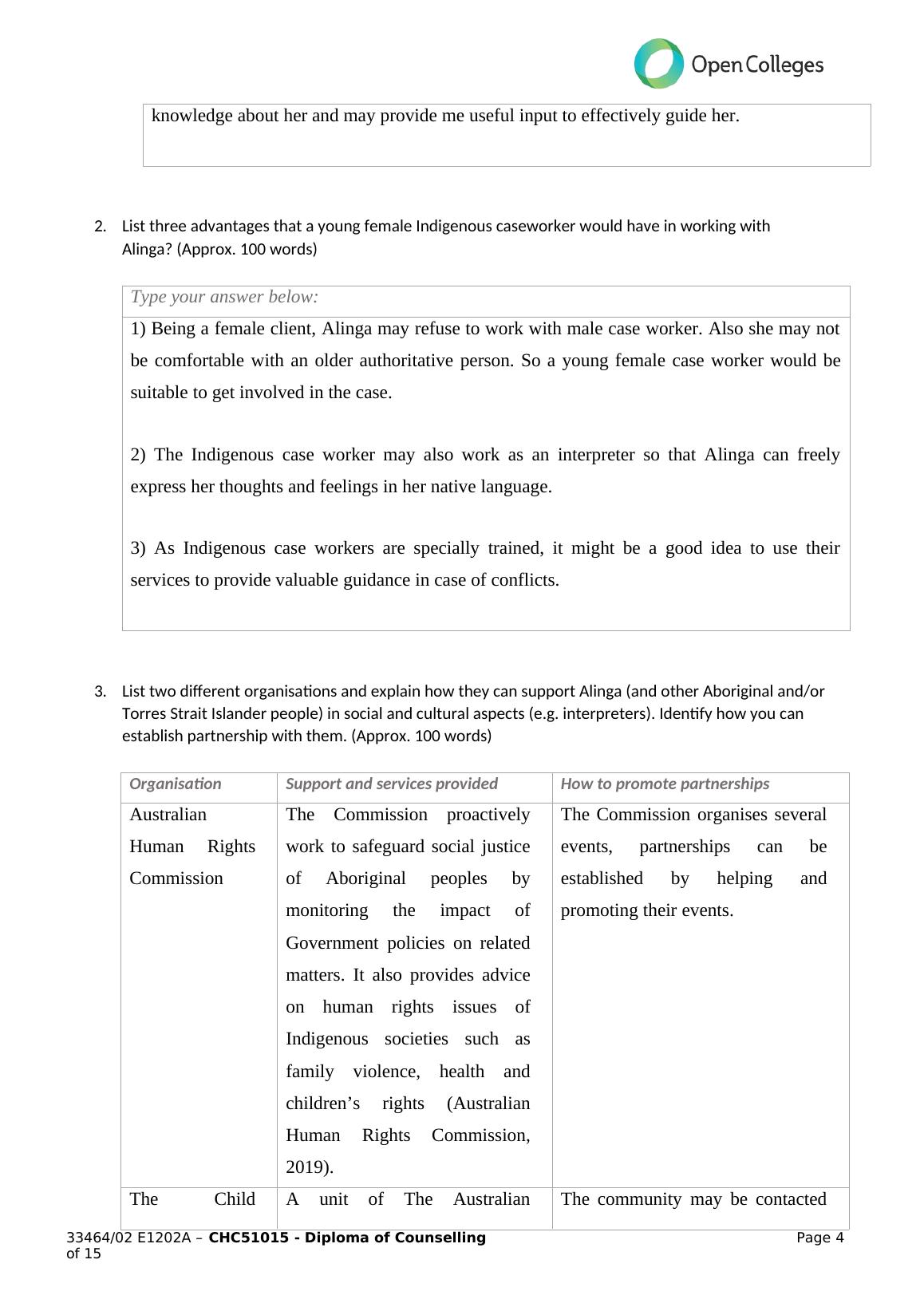Working with Diversity in Counselling: Understanding Aboriginal and Torres Strait Islander Cultures
Answer eight questions about diversity in the workplace and the Aboriginal and/or Torres Strait Islander cultures.
Open Colleges
Diploma of Counselling (E1202A Diploma of Counselling)
Added on 2023-04-25
About This Document
In this document we will discuss about Working with Diversity in Counselling and below are the summary points of this document:-
-
Counsellors face diversity challenges in their practice, including social and cultural factors.
-
Knowledge and respect for Aboriginal and/or Torres Strait Islander cultures is important.
-
Assessment requires answering eight questions about workplace diversity and Indigenous cultures.
Working with Diversity in Counselling: Understanding Aboriginal and Torres Strait Islander Cultures
Answer eight questions about diversity in the workplace and the Aboriginal and/or Torres Strait Islander cultures.
Open Colleges
Diploma of Counselling (E1202A Diploma of Counselling)
Added on 2023-04-25
End of preview
Want to access all the pages? Upload your documents or become a member.




